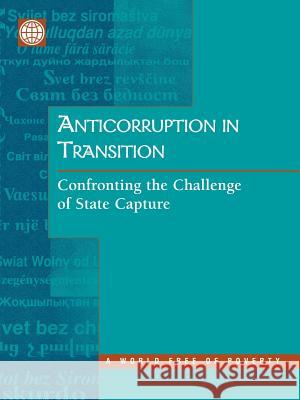Anticorruption in Transition: A Contribution to the Policy Debate » książka
Anticorruption in Transition: A Contribution to the Policy Debate
ISBN-13: 9780821348024 / Angielski / Miękka / 2000 / 136 str.
The old Russian saying of 'kto kovo' (Who will get whom?) has become 'kem skhvachena eto?' (Who has captured this?) under the new transition economy. Instead of one major figure, such as a Stalin or Lenin, vanquishing lesser personages to advance their political aims, many people are taking over corporations to increase their market domination. Their methods are no less brutal, ruthless, or corrupt. In turn, corporations are 'capturing' the state to influence legislation and regulation to their advantage. The advantages for the corporations create disadvantages for the general public and the poor in particular. In many countries, the public perceives corruption to be woven into the basic institutional framework, undermining governance, and weakening the credibility of the state. Recognizing that corruption is one of the most serious obstacles to development, the World Bank has made combating it a central institutional priority. This report analyzes corruption across transition countries and its potential repercussions on their country strategy. The report places primary emphasis on the distinction between state capture and administrative corruption while presenting strategies to avoid both forms of corruption. These strategies recognize and address distinctions in the levels and patterns of corruption in transition countries.











